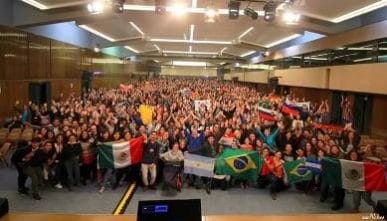
Nov 25, 2016 | Focolare Worldwide
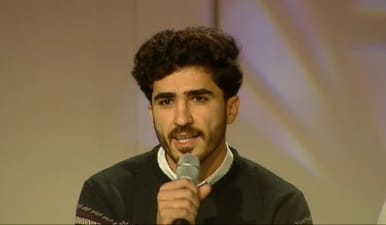 The words of the young Iraqi, Aziiz, were welcomed by a long applause and attentive gazes of more than a thousand Gen attending their annual congress. They listened closely as he recounted the drama that he and his family had lived through in Qaraqosh, a town on the Nineveh Plain, when the militiamen of the self-styled Islamic state arrived. “Before telling you my story,” Aziiz began, “I’d like to ask you a question. Have you ever thought that you could one day lose everything? Your family home with all of your most cherished memories, your friends, dreams and your people? That’s what happened to me….” The suffering of the escape from his hometown with his family towards Iraqi Kurdistan was still visible in his eyes: “I wondered why I had to go through this Calvary, and that’s where the experience began of finding myself living with Jesus Forsaken. I felt like I was in an action film, where I couldn’t differentiate between what was real and what was imaginary: masses of people walking on foot in search of a way to escape, tears, cries…. I was stiffened by the pain, but I said to myself that perhaps I could smile back at the people next to me. With us there was a group from the Yazidi religion, who were in need of even more help, because ISIS had inflicted torture on them. I put my fears aside in order to be close to them and to offer them support.” Aziiz and his family are now taking refuge in France. It was a difficult decision, given the thousands of challenges they would have to face, but he never felt abandoned by God’s love “whose invisible hand continues to wipe away our tears and lightens our sufferings.” We young people possess an enormous potential for changing the world, beginning with the small things: either we live to change something and make the world better; or our life is meaningless.”
The words of the young Iraqi, Aziiz, were welcomed by a long applause and attentive gazes of more than a thousand Gen attending their annual congress. They listened closely as he recounted the drama that he and his family had lived through in Qaraqosh, a town on the Nineveh Plain, when the militiamen of the self-styled Islamic state arrived. “Before telling you my story,” Aziiz began, “I’d like to ask you a question. Have you ever thought that you could one day lose everything? Your family home with all of your most cherished memories, your friends, dreams and your people? That’s what happened to me….” The suffering of the escape from his hometown with his family towards Iraqi Kurdistan was still visible in his eyes: “I wondered why I had to go through this Calvary, and that’s where the experience began of finding myself living with Jesus Forsaken. I felt like I was in an action film, where I couldn’t differentiate between what was real and what was imaginary: masses of people walking on foot in search of a way to escape, tears, cries…. I was stiffened by the pain, but I said to myself that perhaps I could smile back at the people next to me. With us there was a group from the Yazidi religion, who were in need of even more help, because ISIS had inflicted torture on them. I put my fears aside in order to be close to them and to offer them support.” Aziiz and his family are now taking refuge in France. It was a difficult decision, given the thousands of challenges they would have to face, but he never felt abandoned by God’s love “whose invisible hand continues to wipe away our tears and lightens our sufferings.” We young people possess an enormous potential for changing the world, beginning with the small things: either we live to change something and make the world better; or our life is meaningless.”  Chiara Lubich’s words spoken to the Gen2 in 1967 sounded timely as well as prophetic: “Rumours and news of wars sadden the world horizon. Perhaps in the Middle or Far East some of our Gen (…) were or are in danger of dying. Our very goal – to help peace in the world – seems painfully compromised. What will we do? Not be discouraged (…) The bombs fall and destroy houses and kill people: let love spread even more quickly to build a new society and a new world.” “Fifty years have passed, but we’re still that same generation that never stops, said Gloria from Uganda, “that still wants to live the ideal that Chiara has given to us.” Damián from Argentina explains: “This is a moment of celebration for us. We revisited some important moments of the Gen Movement from past years, trying to revive each word that Chiara said to us.” Testimonies were given by Gen from several countries, dialogue and reflection with music and song to celebrate the fifty years of intense life of the Focolare’s second generation. In a video message, Focolare president, Maria Voce, invited the young people to follow the plan of love that God has for each one of them, following the example of Jesus who chose the Cross – love to the very end – to be generous and willing to work for a world of peace. During an enabling and very open discussion, Focolare co-president, Jesùs Morán, encouraged the Gen to live a life of love for others, opting for the least, the people that society rejects in an ever more divided world. The more than a thousand young people departed with Chiara Lubich’s prophetic mandate: “It will be the second generation that will make the cry of Jesus Forsaken echo to the ends of the earth … And in that cry the entire world will breathe again.” Patrizia Mazzola
Chiara Lubich’s words spoken to the Gen2 in 1967 sounded timely as well as prophetic: “Rumours and news of wars sadden the world horizon. Perhaps in the Middle or Far East some of our Gen (…) were or are in danger of dying. Our very goal – to help peace in the world – seems painfully compromised. What will we do? Not be discouraged (…) The bombs fall and destroy houses and kill people: let love spread even more quickly to build a new society and a new world.” “Fifty years have passed, but we’re still that same generation that never stops, said Gloria from Uganda, “that still wants to live the ideal that Chiara has given to us.” Damián from Argentina explains: “This is a moment of celebration for us. We revisited some important moments of the Gen Movement from past years, trying to revive each word that Chiara said to us.” Testimonies were given by Gen from several countries, dialogue and reflection with music and song to celebrate the fifty years of intense life of the Focolare’s second generation. In a video message, Focolare president, Maria Voce, invited the young people to follow the plan of love that God has for each one of them, following the example of Jesus who chose the Cross – love to the very end – to be generous and willing to work for a world of peace. During an enabling and very open discussion, Focolare co-president, Jesùs Morán, encouraged the Gen to live a life of love for others, opting for the least, the people that society rejects in an ever more divided world. The more than a thousand young people departed with Chiara Lubich’s prophetic mandate: “It will be the second generation that will make the cry of Jesus Forsaken echo to the ends of the earth … And in that cry the entire world will breathe again.” Patrizia Mazzola
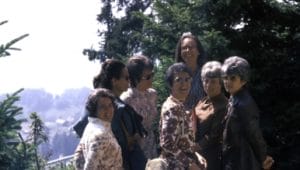
Nov 22, 2016 | Focolare Worldwide
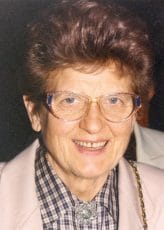 “Let us accompany Aletta with joy and immense gratitude to the house of the Father. We couldn’t have a better model of one who “gave her life unsparingly” to God, as today’s daily thought suggests.” This is how Maria Voce informed the members of the Focolare Movement of the death of Vittoria Salizzoni, who passed away peacefully on the morning of 22 November, a few days before reaching the age of 92 years. Vittoria Salizzoni was born in Martignano (Trent) on 27 November 1924. She was the third of 8 children born to Mary and David Salizzoni. She lived in France for 12 years where she had emigrated with her family. In 1941, she returned to Trento and on 7 January 1945, during World War II, she met Chiara Lubich, and remained close to her for many years.
“Let us accompany Aletta with joy and immense gratitude to the house of the Father. We couldn’t have a better model of one who “gave her life unsparingly” to God, as today’s daily thought suggests.” This is how Maria Voce informed the members of the Focolare Movement of the death of Vittoria Salizzoni, who passed away peacefully on the morning of 22 November, a few days before reaching the age of 92 years. Vittoria Salizzoni was born in Martignano (Trent) on 27 November 1924. She was the third of 8 children born to Mary and David Salizzoni. She lived in France for 12 years where she had emigrated with her family. In 1941, she returned to Trento and on 7 January 1945, during World War II, she met Chiara Lubich, and remained close to her for many years.

Aletta Salizzoni (right) with some of the first companions of Chiara Lubich
Nov 22, 2016 | Focolare Worldwide
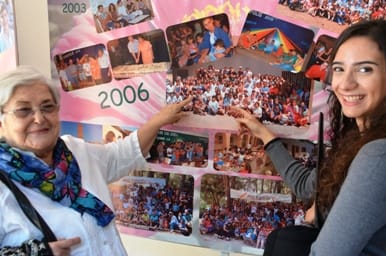
Nov 21, 2016 | Focolare Worldwide, Senza categoria
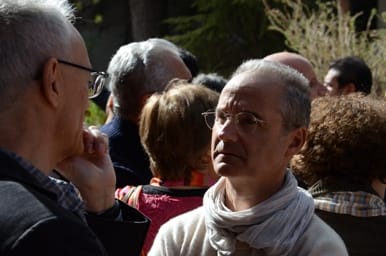 A country in which Christians are less than 1% of the population, Algeria was the first Muslim country to welcome the spirituality of unity in the mid-1960s. They were difficult years of transition and development in this strategic region. Here, the monks of Tibhirine are universally honoured as an example that transcends religious differences and points to the fraternal relationship that unites all the members of the human race. “Chiara Lubich had invited us not to stop in the face of the present difficulties,” Rosi Berolasi recalls. She spent 13 years in the focolare in Algiers. “Looking at it through her eyes, the experience we lived was charged with hope. She already saw the life that would later develop.” Rosi goes on to say: “Also the then bishop of Algiers, Cardinal Duval, had always encouraged us and today we are glad to say that there are Muslim men and women who have their own experience as members of the Focolare Movement.” In Tlemcen the 50th anniversary of the Focolare Movement’s arrival was celebrated last year at the beginning of November. Algeria opened the door to many other countries of North Africa and the Middle East. Archbishop Emeritus of Algiers, Archbishop Tessier, and Bishop of Orano, Bishop Vesco also attended the celebrations, along with Focolare co-president, Jesús Morán and people representing Focolare communities in several regions of the Middle East, inlcuding Syria. French focolarino, Pierre Le Vaslot, who now lives in Italy, remembered their arrival as if it was yesterday. He spoke at the current Mariapolis Centre which is named after Ulisse Caglioni (March 5, 1943 – September 1, 2003). Ulisse was one of those focolarini that spent their lives giving selfless witness to universal brotherhood ever since they arrived on October 5, 1966 in a Citroën that they had driven all the way from Paris.
A country in which Christians are less than 1% of the population, Algeria was the first Muslim country to welcome the spirituality of unity in the mid-1960s. They were difficult years of transition and development in this strategic region. Here, the monks of Tibhirine are universally honoured as an example that transcends religious differences and points to the fraternal relationship that unites all the members of the human race. “Chiara Lubich had invited us not to stop in the face of the present difficulties,” Rosi Berolasi recalls. She spent 13 years in the focolare in Algiers. “Looking at it through her eyes, the experience we lived was charged with hope. She already saw the life that would later develop.” Rosi goes on to say: “Also the then bishop of Algiers, Cardinal Duval, had always encouraged us and today we are glad to say that there are Muslim men and women who have their own experience as members of the Focolare Movement.” In Tlemcen the 50th anniversary of the Focolare Movement’s arrival was celebrated last year at the beginning of November. Algeria opened the door to many other countries of North Africa and the Middle East. Archbishop Emeritus of Algiers, Archbishop Tessier, and Bishop of Orano, Bishop Vesco also attended the celebrations, along with Focolare co-president, Jesús Morán and people representing Focolare communities in several regions of the Middle East, inlcuding Syria. French focolarino, Pierre Le Vaslot, who now lives in Italy, remembered their arrival as if it was yesterday. He spoke at the current Mariapolis Centre which is named after Ulisse Caglioni (March 5, 1943 – September 1, 2003). Ulisse was one of those focolarini that spent their lives giving selfless witness to universal brotherhood ever since they arrived on October 5, 1966 in a Citroën that they had driven all the way from Paris.  Upon their arrival the three focolarini – Pierre, Ulisse and Salvatore Strippoli – found themselves standing in front of the abandoned Benedictine Monastery that needed to be rebuilt. It had been constructed in the 1950s by German Abbot, Dom Walzer, who had been driven out of German for refusing to welcome Hitler at the Abbey of Beuron. The monastery is built against a mountain, at 900 metres and a few steps away from the tomb of Sufi mystic, Sidi Boumedienne, who left a strong spiritual imprint on the local region and beyond. The location is a perfect setting for gathering, hospitality and dialogue. It’s peaceful and serene. An experience of presence and sharing life began at the Dar es Salam centre in Tlemcen with people from the city. “It was a joy for us in Orano, to see the monastery brought back to life,” says the then young priest Theirry Becker. “But who are these focolarini? Nobody has ever heard of them. They’re neither priests nor monks, yet they live in community. They came to live unity and to make unity come alive in the people around them. I listened to them talk about their ideal, about Chiara Lubich, from whom I began to learn more about the spirituality. They immediately got to work, and Ulisse soon transformed the whole house.” Those were years of constant experiences, such as the contact with Imam Barkat. The focolarini had helped him save his little son, taking him to hospital in the middle of the night and insisting with the doctors. It would be this very Imam and father of the little one, to go to the focolare to give courses on the prophetic Hadiths and offer correct explanations of their spiritual writings. There were also very moving words from the first young people who were regulars at the focolare in Tlemcen in the 1960s – Mourad, Bouziane and Farouk. Now they are happily married with children of their own, and the new generations are carrying forward the ideal which they were the first to believe in. Maria Chiara De Lorenzo
Upon their arrival the three focolarini – Pierre, Ulisse and Salvatore Strippoli – found themselves standing in front of the abandoned Benedictine Monastery that needed to be rebuilt. It had been constructed in the 1950s by German Abbot, Dom Walzer, who had been driven out of German for refusing to welcome Hitler at the Abbey of Beuron. The monastery is built against a mountain, at 900 metres and a few steps away from the tomb of Sufi mystic, Sidi Boumedienne, who left a strong spiritual imprint on the local region and beyond. The location is a perfect setting for gathering, hospitality and dialogue. It’s peaceful and serene. An experience of presence and sharing life began at the Dar es Salam centre in Tlemcen with people from the city. “It was a joy for us in Orano, to see the monastery brought back to life,” says the then young priest Theirry Becker. “But who are these focolarini? Nobody has ever heard of them. They’re neither priests nor monks, yet they live in community. They came to live unity and to make unity come alive in the people around them. I listened to them talk about their ideal, about Chiara Lubich, from whom I began to learn more about the spirituality. They immediately got to work, and Ulisse soon transformed the whole house.” Those were years of constant experiences, such as the contact with Imam Barkat. The focolarini had helped him save his little son, taking him to hospital in the middle of the night and insisting with the doctors. It would be this very Imam and father of the little one, to go to the focolare to give courses on the prophetic Hadiths and offer correct explanations of their spiritual writings. There were also very moving words from the first young people who were regulars at the focolare in Tlemcen in the 1960s – Mourad, Bouziane and Farouk. Now they are happily married with children of their own, and the new generations are carrying forward the ideal which they were the first to believe in. Maria Chiara De Lorenzo
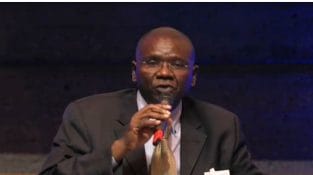
Nov 18, 2016 | Focolare Worldwide
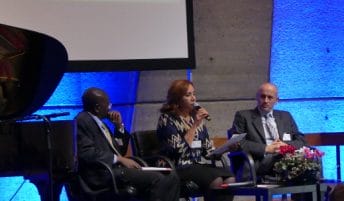 «In a world where globalisation dictates its laws, one of the most important paradoxes we are encountering is that the voice of the southern end of the world is being ignored. Though rich in natural resources like diamonds, gold, oil and other precious minerals, Africa faces: growing poverty and underdevelopment, the worst life expectancy, and a high level of illiteracy, despite the millions of dollars in western aid deposited along the years in various projects. Why? The dramatic response is not only the war we have to suffer, or diseases, but especially corruption which in Africa has become a normal and accepted fact, tearing the continent apart. It is a continent in which the poor have to be corrupt in order to survive, get treated in hospitals, enter one of the “best” professional schools, obtain jobs and get out of jail. Not even the laws are able to eradicate this evil. In most African countries, the law is of western origin, with some nuances taken from local cultures. Protection of the individual alone, for as much as is universally accepted, goes against the principle of the community, most dear to African traditions and that underline the importance of solidarity. The individual is such only if he belongs to a community and acts in function of the community. It is the principle of the “Ubuntu”: I exist because we exist. In the African culture, the Ubuntu is an invitation to support and help each other; it is the awareness of one’s own duties. This how Nelson Mandela put it: Ubuntu means to ask oneself, “Do I want to help the community around me to improve?” It is a rule of life based on respect for others, and a belief in a bond of sharing which unites all of humanity. It is a desire for peace. And yet, precisely in Africa, peace is lacking in many places and the remote cause of the conflicts is absurdly one’s own immense wealth. There are battles to control the minerals and the victims of these conflicts are the weakest people. In the effort to integrate one’s own values with those inherited from colonisation and in the face of the challenges of a world in which economic development gives the right to speak up, Africa is increasingly losing its own values, without acquiring the truly important ones. In my country, Cameroon, which is full of corruption, a small town arose. Chiara Lubich created it by carrying out social
«In a world where globalisation dictates its laws, one of the most important paradoxes we are encountering is that the voice of the southern end of the world is being ignored. Though rich in natural resources like diamonds, gold, oil and other precious minerals, Africa faces: growing poverty and underdevelopment, the worst life expectancy, and a high level of illiteracy, despite the millions of dollars in western aid deposited along the years in various projects. Why? The dramatic response is not only the war we have to suffer, or diseases, but especially corruption which in Africa has become a normal and accepted fact, tearing the continent apart. It is a continent in which the poor have to be corrupt in order to survive, get treated in hospitals, enter one of the “best” professional schools, obtain jobs and get out of jail. Not even the laws are able to eradicate this evil. In most African countries, the law is of western origin, with some nuances taken from local cultures. Protection of the individual alone, for as much as is universally accepted, goes against the principle of the community, most dear to African traditions and that underline the importance of solidarity. The individual is such only if he belongs to a community and acts in function of the community. It is the principle of the “Ubuntu”: I exist because we exist. In the African culture, the Ubuntu is an invitation to support and help each other; it is the awareness of one’s own duties. This how Nelson Mandela put it: Ubuntu means to ask oneself, “Do I want to help the community around me to improve?” It is a rule of life based on respect for others, and a belief in a bond of sharing which unites all of humanity. It is a desire for peace. And yet, precisely in Africa, peace is lacking in many places and the remote cause of the conflicts is absurdly one’s own immense wealth. There are battles to control the minerals and the victims of these conflicts are the weakest people. In the effort to integrate one’s own values with those inherited from colonisation and in the face of the challenges of a world in which economic development gives the right to speak up, Africa is increasingly losing its own values, without acquiring the truly important ones. In my country, Cameroon, which is full of corruption, a small town arose. Chiara Lubich created it by carrying out social  work in favour of the Bangwa people who were at risk of extinction but found salvation instead. But with this work, Chiara above all introduced a new lifestyle, drawing inspiration from the principle of fraternity: giving rise to a coexistence inspired by reciprocity in true justice, which squashes every quarrel, prevents conflicts, and finds solutions to problems also in the families; nobody steals, kills, and the “paths of peace” are pursued. Fraternity can thus become also a lawful principle for coexistence, change relationships in the name of acceptance and inclusion, and translate into solidarity, responsibility and mutual assistance. Peace is expressed today as development, security, universality of human rights, and respect for life: peace is a right, but awaits that lawfulness to be used as its tool. And for this, Declarations and Treaties will not suffice if expressed only in the singular sense, affirming the individual and giving room to interests and conflicts. The “universal” does not mean “absolute,” but “collective”; it is what unites otherwise there will be no relationships between individuals and cultures, or concepts that clash with each other . And if universality enclosed in human dignity allows relationships with each other, fraternity which is the new paradigm, may be the new inspiring principle until it “becomes” also part of the legal system that paves the way for peace. What is born in the heart and translated into coherent attitudes in daily life, will be able to transform relational conflicts into sharing, and ultimately into reciprocity, where what is due is given as a gift to others». Raphaël Takougang
work in favour of the Bangwa people who were at risk of extinction but found salvation instead. But with this work, Chiara above all introduced a new lifestyle, drawing inspiration from the principle of fraternity: giving rise to a coexistence inspired by reciprocity in true justice, which squashes every quarrel, prevents conflicts, and finds solutions to problems also in the families; nobody steals, kills, and the “paths of peace” are pursued. Fraternity can thus become also a lawful principle for coexistence, change relationships in the name of acceptance and inclusion, and translate into solidarity, responsibility and mutual assistance. Peace is expressed today as development, security, universality of human rights, and respect for life: peace is a right, but awaits that lawfulness to be used as its tool. And for this, Declarations and Treaties will not suffice if expressed only in the singular sense, affirming the individual and giving room to interests and conflicts. The “universal” does not mean “absolute,” but “collective”; it is what unites otherwise there will be no relationships between individuals and cultures, or concepts that clash with each other . And if universality enclosed in human dignity allows relationships with each other, fraternity which is the new paradigm, may be the new inspiring principle until it “becomes” also part of the legal system that paves the way for peace. What is born in the heart and translated into coherent attitudes in daily life, will be able to transform relational conflicts into sharing, and ultimately into reciprocity, where what is due is given as a gift to others». Raphaël Takougang
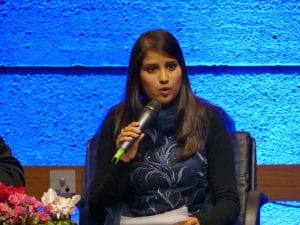
Nov 16, 2016 | Focolare Worldwide

Arooj Javed. Photo © Fabio Bertagnin – CSC Audiovisivi
“Today’s young people aspire to become global citizens and we aspire to a united world,” concluded Arooj Javed, a young student in International Relations, a statement which sums up the objectives of New Humanity.
This celebration of the 20th anniversary of the awarding of the Peace Education Prize to Chiara Lubich was not a nostalgic revisiting of the event. The recent US elections, the tragedy of refugees, climatic change, rising inequality, the greed-dominated markets – all these dramatic happenings, evoked by the various speakers, fully justified the title chosen for the symposium: “Reinventing Peace”. It was to discover – beginning with the Focolare communitarian spirituality – “new solutions” to the “agonizing face of new situations of war”, as expressed by Jesús Morán, the co-President of the Movement. Several catchphrases shed light on these reflections: intercultural laboratories, universal brotherhood, interreligious solidarity, the efforts of co-habitation and, above all, education in dialogue and peace.
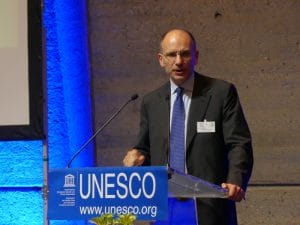
Enrico Letta. Photo © Fabio Bertagnin – CSC Audiovisivi
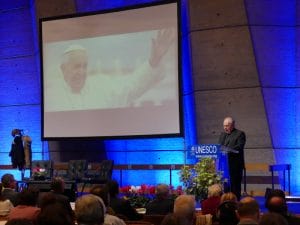
Francesco Follo, permanent observer of the Holy See to UNESCO, Photo © Fabio Bertagnin – CSC Audiovisivi
Chantal Joly (Paris)
Replay web streaming

 The words of the young Iraqi, Aziiz, were welcomed by a long applause and attentive gazes of more than a thousand Gen attending their annual congress. They listened closely as he recounted the drama that he and his family had lived through in Qaraqosh, a town on the Nineveh Plain, when the militiamen of the self-styled Islamic state arrived. “Before telling you my story,” Aziiz began, “I’d like to ask you a question. Have you ever thought that you could one day lose everything? Your family home with all of your most cherished memories, your friends, dreams and your people? That’s what happened to me….” The suffering of the escape from his hometown with his family towards Iraqi Kurdistan was still visible in his eyes: “I wondered why I had to go through this Calvary, and that’s where the experience began of finding myself living with Jesus Forsaken. I felt like I was in an action film, where I couldn’t differentiate between what was real and what was imaginary: masses of people walking on foot in search of a way to escape, tears, cries…. I was stiffened by the pain, but I said to myself that perhaps I could smile back at the people next to me. With us there was a group from the Yazidi religion, who were in need of even more help, because ISIS had inflicted torture on them. I put my fears aside in order to be close to them and to offer them support.” Aziiz and his family are now taking refuge in France. It was a difficult decision, given the thousands of challenges they would have to face, but he never felt abandoned by God’s love “whose invisible hand continues to wipe away our tears and lightens our sufferings.” We young people possess an enormous potential for changing the world, beginning with the small things: either we live to change something and make the world better; or our life is meaningless.”
The words of the young Iraqi, Aziiz, were welcomed by a long applause and attentive gazes of more than a thousand Gen attending their annual congress. They listened closely as he recounted the drama that he and his family had lived through in Qaraqosh, a town on the Nineveh Plain, when the militiamen of the self-styled Islamic state arrived. “Before telling you my story,” Aziiz began, “I’d like to ask you a question. Have you ever thought that you could one day lose everything? Your family home with all of your most cherished memories, your friends, dreams and your people? That’s what happened to me….” The suffering of the escape from his hometown with his family towards Iraqi Kurdistan was still visible in his eyes: “I wondered why I had to go through this Calvary, and that’s where the experience began of finding myself living with Jesus Forsaken. I felt like I was in an action film, where I couldn’t differentiate between what was real and what was imaginary: masses of people walking on foot in search of a way to escape, tears, cries…. I was stiffened by the pain, but I said to myself that perhaps I could smile back at the people next to me. With us there was a group from the Yazidi religion, who were in need of even more help, because ISIS had inflicted torture on them. I put my fears aside in order to be close to them and to offer them support.” Aziiz and his family are now taking refuge in France. It was a difficult decision, given the thousands of challenges they would have to face, but he never felt abandoned by God’s love “whose invisible hand continues to wipe away our tears and lightens our sufferings.” We young people possess an enormous potential for changing the world, beginning with the small things: either we live to change something and make the world better; or our life is meaningless.”  Chiara Lubich’s words spoken to the Gen2 in 1967 sounded timely as well as prophetic: “Rumours and news of wars sadden the world horizon. Perhaps in the Middle or Far East some of our Gen (…) were or are in danger of dying. Our very goal – to help peace in the world – seems painfully compromised. What will we do? Not be discouraged (…) The bombs fall and destroy houses and kill people: let love spread even more quickly to build a new society and a new world.” “Fifty years have passed, but we’re still that same generation that never stops, said Gloria from Uganda, “that still wants to live the ideal that Chiara has given to us.” Damián from Argentina explains: “This is a moment of celebration for us. We revisited some important moments of the Gen Movement from past years, trying to revive each word that Chiara said to us.” Testimonies were given by Gen from several countries, dialogue and reflection with music and song to celebrate the fifty years of intense life of the Focolare’s second generation. In a video message, Focolare president, Maria Voce, invited the young people to follow the plan of love that God has for each one of them, following the example of Jesus who chose the Cross – love to the very end – to be generous and willing to work for a world of peace. During an enabling and very open discussion, Focolare co-president, Jesùs Morán, encouraged the Gen to live a life of love for others, opting for the least, the people that society rejects in an ever more divided world. The more than a thousand young people departed with Chiara Lubich’s prophetic mandate: “It will be the second generation that will make the cry of Jesus Forsaken echo to the ends of the earth … And in that cry the entire world will breathe again.” Patrizia Mazzola
Chiara Lubich’s words spoken to the Gen2 in 1967 sounded timely as well as prophetic: “Rumours and news of wars sadden the world horizon. Perhaps in the Middle or Far East some of our Gen (…) were or are in danger of dying. Our very goal – to help peace in the world – seems painfully compromised. What will we do? Not be discouraged (…) The bombs fall and destroy houses and kill people: let love spread even more quickly to build a new society and a new world.” “Fifty years have passed, but we’re still that same generation that never stops, said Gloria from Uganda, “that still wants to live the ideal that Chiara has given to us.” Damián from Argentina explains: “This is a moment of celebration for us. We revisited some important moments of the Gen Movement from past years, trying to revive each word that Chiara said to us.” Testimonies were given by Gen from several countries, dialogue and reflection with music and song to celebrate the fifty years of intense life of the Focolare’s second generation. In a video message, Focolare president, Maria Voce, invited the young people to follow the plan of love that God has for each one of them, following the example of Jesus who chose the Cross – love to the very end – to be generous and willing to work for a world of peace. During an enabling and very open discussion, Focolare co-president, Jesùs Morán, encouraged the Gen to live a life of love for others, opting for the least, the people that society rejects in an ever more divided world. The more than a thousand young people departed with Chiara Lubich’s prophetic mandate: “It will be the second generation that will make the cry of Jesus Forsaken echo to the ends of the earth … And in that cry the entire world will breathe again.” Patrizia Mazzola

 “Let us accompany Aletta with joy and immense gratitude to the house of the Father. We couldn’t have a better model of one who “gave her life unsparingly” to God, as today’s daily thought suggests.” This is how
“Let us accompany Aletta with joy and immense gratitude to the house of the Father. We couldn’t have a better model of one who “gave her life unsparingly” to God, as today’s daily thought suggests.” This is how 


 «In a world where globalisation dictates its laws, one of the most important paradoxes we are encountering is that the voice of the southern end of the world is being ignored. Though rich in natural resources like diamonds, gold, oil and other precious minerals, Africa faces: growing poverty and underdevelopment, the worst life expectancy, and a high level of illiteracy, despite the millions of dollars in western aid deposited along the years in various projects. Why? The dramatic response is not only the war we have to suffer, or diseases, but especially corruption which in Africa has become a normal and accepted fact, tearing the continent apart. It is a continent in which the poor have to be corrupt in order to survive, get treated in hospitals, enter one of the “best” professional schools, obtain jobs and get out of jail. Not even the laws are able to eradicate this evil. In most African countries, the law is of western origin, with some nuances taken from local cultures. Protection of the individual alone, for as much as is universally accepted, goes against the principle of the community, most dear to African traditions and that underline the importance of solidarity. The individual is such only if he belongs to a community and acts in function of the community. It is the principle of the “Ubuntu”: I exist because we exist. In the African culture, the
«In a world where globalisation dictates its laws, one of the most important paradoxes we are encountering is that the voice of the southern end of the world is being ignored. Though rich in natural resources like diamonds, gold, oil and other precious minerals, Africa faces: growing poverty and underdevelopment, the worst life expectancy, and a high level of illiteracy, despite the millions of dollars in western aid deposited along the years in various projects. Why? The dramatic response is not only the war we have to suffer, or diseases, but especially corruption which in Africa has become a normal and accepted fact, tearing the continent apart. It is a continent in which the poor have to be corrupt in order to survive, get treated in hospitals, enter one of the “best” professional schools, obtain jobs and get out of jail. Not even the laws are able to eradicate this evil. In most African countries, the law is of western origin, with some nuances taken from local cultures. Protection of the individual alone, for as much as is universally accepted, goes against the principle of the community, most dear to African traditions and that underline the importance of solidarity. The individual is such only if he belongs to a community and acts in function of the community. It is the principle of the “Ubuntu”: I exist because we exist. In the African culture, the 

